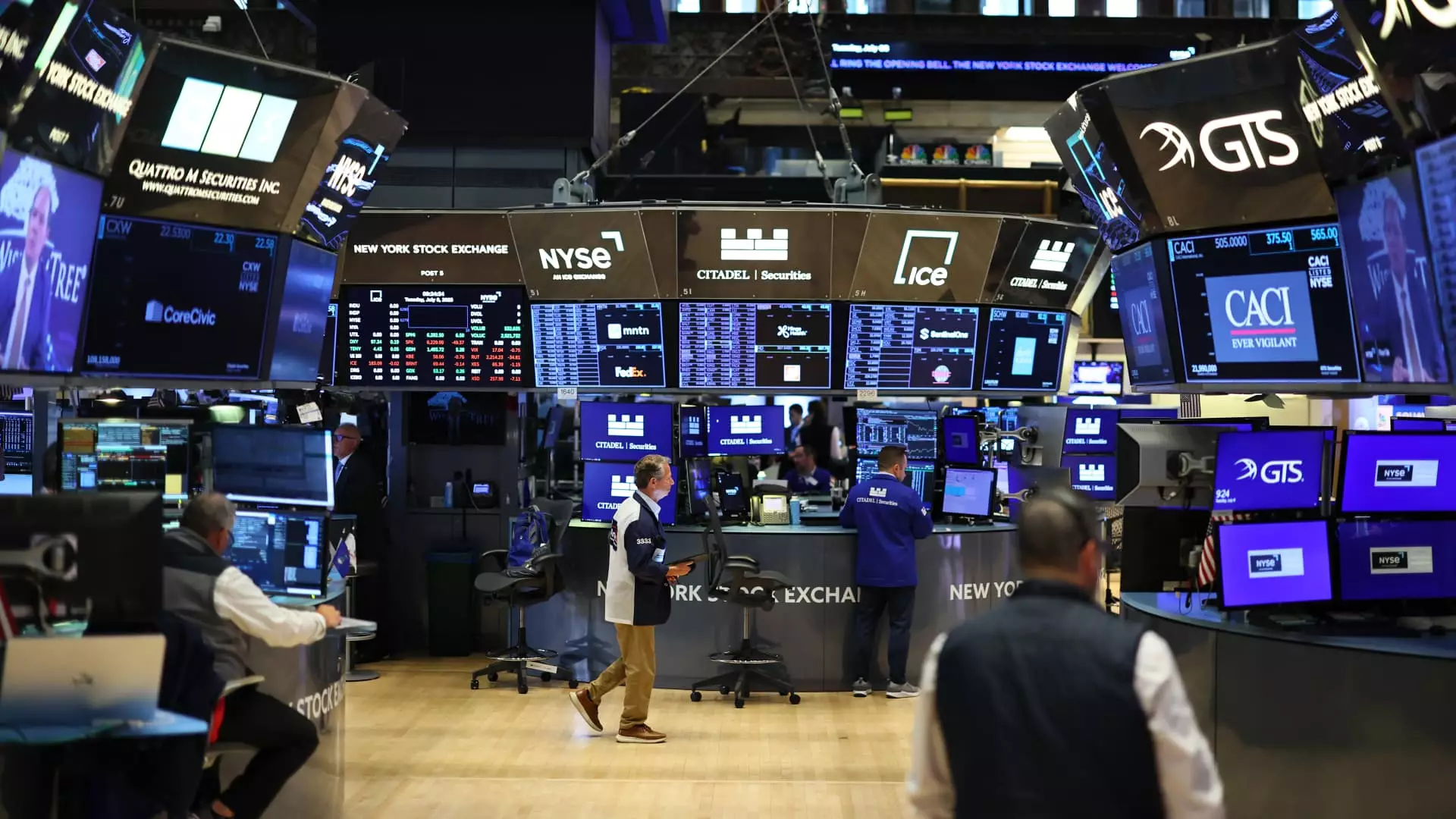The current financial narrative suggests that the next six months could be a difficult period for stock market investors. Despite the prevailing optimism among some institutional voices, an honest assessment reveals that trouble might be looming on the horizon. Many investors tend to cling to the hope of continued growth or quick recoveries, but such optimism risks blinding them to the realities of a sluggish economy and rising uncertainties. There’s a compelling case to be made that a cautious, even defensive stance, is prudent—not just for the immediate future but as a strategic posture moving forward. Overconfidence in equities, especially amid slowing growth, could lead to sharp disappointment and financial vulnerability.
Fixed Income: The Unsung Hero in a Volatile Environment
The spotlight should now fall on fixed income assets, which are increasingly becoming a safe harbor amid turbulent waters. Vanguard’s recent projections carry a clear warning: growth will decelerate, labor markets will soften, and inflation will persist. These signals, though seemingly subdued, indicate a less forgiving environment for equity investors. Relying solely on stocks during this period is an act of hopeful speculation rather than strategic planning. Instead, emphasizing bonds—particularly government securities—could provide essential stability and a buffer against potential market downturns. The notion that central banks might pivot towards easing monetary policy to safeguard employment underscores the importance of fixed income as a safeguard. Investors ignoring this shift risk missing out on the stabilizing gains that bonds can deliver when stocks falter.
Misguided Popularity of Technology and Infrastructure Bets
The allure of high-growth sectors like artificial intelligence and infrastructure remains tempting, but this must be tempered with realism. While these macro trends are undeniably impactful, the temptation to chase such themes can distract from more nuanced, risk-conscious investing. The reality is that geopolitics and global fragmentation are simmering underneath these growth stories, casting shadows over optimistic projections. Investors often fall prey to overconfidence when betting on the future of these sectors, neglecting the inherent vulnerabilities in a fragile geopolitical climate. A balanced approach that pools exposure—balancing aggressive innovation bets with defensive holdings—is critical. Overcommitting to rush-in sectors could be a recipe for disillusionment when unforeseen geopolitical or economic shocks strike.
The Limitations of Strategic Buffering in a Fragile Market
BlackRock’s introduction of buffer ETFs offers a carefully calibrated approach—one designed to limit downside while capturing some upside. This strategy is increasingly appealing in an environment where the future remains unpredictable; it offers a measured means to navigate potential downturns without abandoning the market altogether. Yet, this approach is not without risks. Investors relying solely on capped return strategies might miss opportunities for outsized gains, but that tradeoff might be justified in an era where unpredictable shocks could erode gains quickly. This cautious optimism—embracing a conservative yet opportunistic stance—is essential for those wary of a rapidly shifting market landscape. As cash holdings decrease and investors seek to re-enter, such tools could serve as a critical bridge to balanced, risk-aware participation in the markets.
A Call for Responsible Investment: Moving Beyond Short-Term Hype
The broader takeaway is that investors must move away from the temptations of short-term gains and flashy themes. Our collective capital has a profound role to play in shaping the economy and society—especially in a time of flux. Responsible investing entails more than chasing current hot sectors; it calls for a strategic, value-based approach that balances growth prospects with risk mitigation. In this context, the emphasis on fixed income, the prudent use of buffer instruments, and a critical eye on geopolitics are not just defensive measures—they are a reflection of a mature investment philosophy. The future of markets depends on this sober, responsible stance—one that recognizes the complexities and avoids the seductive trap of overconfidence. Only then can investors navigate this uncertain terrain with integrity and resilience.

